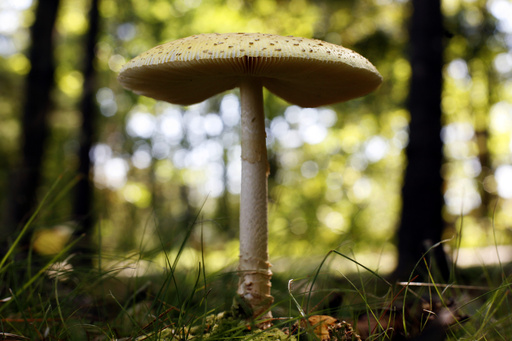The wet and warm summer in the Midwest this year has led to an abundance of wild mushrooms, resulting in a notable increase in calls to poison control centers. In Minnesota, the Regional Poison Center has experienced a substantial surge in calls from April to July compared to the same period last year, with 90 calls for potential mushroom exposures, contrasting with 26 calls during those months in 2023. The center’s director, Samantha Lee, mentioned that the calls include instances of individuals who have had contact with potentially poisonous mushrooms and may exhibit symptoms.
Children unaware of the danger and inexperienced foragers making mistakes are among those who may be involved in these cases. However, the numbers do not account for individuals who inquire about the edibility of mushrooms growing on their properties. Despite most cases resulting in mild symptoms like upset stomachs, vomiting, and diarrhea, some incidents can lead to serious consequences.
The trend of increased calls to poison control centers due to mushroom exposures is observed in other wet regions of the country. Kait Brown, the clinical managing director of America’s Poison Centers, noted a 26% rise in calls across all states and territories from April to June. The Minnesota poison center recently issued a warning emphasizing the challenge of identifying wild mushrooms for untrained individuals, as there are toxic species such as the “death angel” or “destroying angel” that can cause severe health issues, including liver failure.
The popularity of foraging for wild mushrooms has escalated in recent years, with the practice becoming more widespread even before the pandemic, according to Peter Martignacco, president of the Minnesota Mycological Society. Tim Clemens, a professional forager, and consultant for the Minnesota poison center, highlighted the ideal approach of learning about safe mushroom identification by accompanying an experienced mushroom hunter. While there are useful guide books available, reliance on identification apps or AI-generated guides can be unreliable and potentially harmful.
Martignacco’s group offers organized forays throughout the state to educate individuals on safe foraging practices. Despite the risks associated with consuming unidentified mushrooms, some people still take the chance, as Clemens pointed out. Ultimately, caution and proper education are essential to prevent mushroom-related poisonings.


